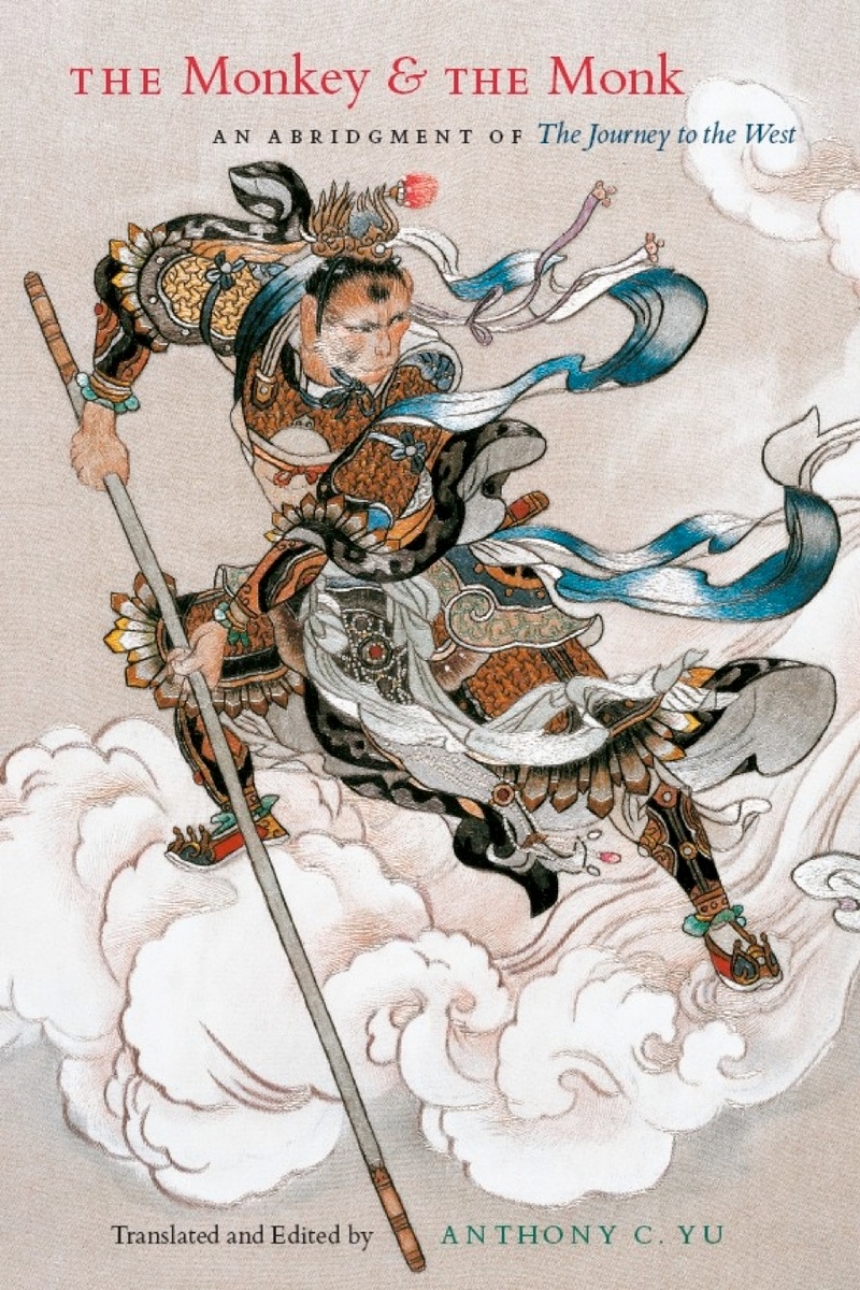The Monkey and the Monk
An Abridgment of The Journey to the West
The Monkey and the Monk
An Abridgment of The Journey to the West
Anthony C. Yu’s celebrated translation of The Journey to the West reinvigorated one of Chinese literature’s most beloved classics for English-speaking audiences when it first appeared thirty years ago. Yu’s abridgment of his four-volume translation, The Monkey and the Monk, finally distills the epic novel’s most exciting and meaningful episodes without taking anything away from their true spirit.
These fantastic episodes recount the adventures of Xuanzang, a seventh-century monk who became one of China’s most illustrious religious heroes after traveling for sixteen years in search of Buddhist scriptures. Powerfully combining religious allegory with humor, fantasy, and satire, accounts of Xuanzang’s journey were passed down for a millennium before culminating in the sixteenth century with The Journey to the West. Now, readers of The Monkey and the Monk can experience the full force of his lengthy quest as he travels to India with four animal disciples, most significant among them a guardian-monkey known as “the Great Sage, Equal to Heaven.” Moreover, in its newly streamlined form, this acclaimed translation of a seminal work of world literature is sure to attract an entirely new following of students and fans.
“A new translation of a major literary text which totally supersedes the best existing version. . . . It establishes beyond contention the position of The Journey to the West in world literature, while at the same time throwing open wide the doors to interpretive study on the part of the English audience.”—Modern Language Notes, on the unabridged translation
528 pages | 1 line drawing | 6 x 9 | © 2006
Asian Studies: East Asia
Literature and Literary Criticism: Asian Languages
Reviews
Table of Contents
1. The divine root being conceived, the origin appears;
2. Having fully awakened to Bodhi’s wondrous truths,
3. The Four Seas and the Thousand Mountains all bow to submit;
4. Appointed as a Bima, how could he be content?;
5. Disrupting the Peach Festival, the Great Sage steals elixir;
6. Guanyin, attending the banquet, inquires into the affair;
7. From the Eight Trigrams Brazier the Great Sage escapes;
8. Our Sovereign Buddha makes scriptures to impart ultimate bliss;
9. Chen Guangrui, going to his post, meets disaster;
10. The Old Dragon King, in foolish schemes, transgresses Heaven’s decrees;
12. The Tang emperor, firm in sincerity, convenes the Grand Mass;
13. In the Den of Tigers, the Gold Star brings deliverance;
14. Mind Monkey returns to the Right;
15. At Serpent Coil Mountain, the gods give secret protection;
16. At the Guanyin Hall the Tang monk escapes his ordeal;
17. At Cloudy Paths Cave, Wukong takes in Bajie;
18. Bajie fights fiercely at the Flowing-Sand River;
19. Tripitaka does not forget his origin;
20. The dharma-body in primary cycle meets the force of the cart;
21. At the Three Pure Ones Temple the Great Sage leaves his name;
22. Heresy flaunts its strength to mock orthodoxy;
23. The Chan Master, taking food, is demonically conceived;
24. Dharma-nature, going west, reaches the Women Nation;
25. Deviant form makes lustful play for Tripitaka Tang;
26. The true Pilgrim lays bare his woes at Mount Potalaka;
27. Two Minds cause disturbance in the great cosmos;
28. Priests are hard to destroy—that’s great awakening;
29. Only when ape and horse are tamed will shells be cast;
30. Nine times nine ends the count and Mara’s all destroyed;
31. They return to the Land of the East;
